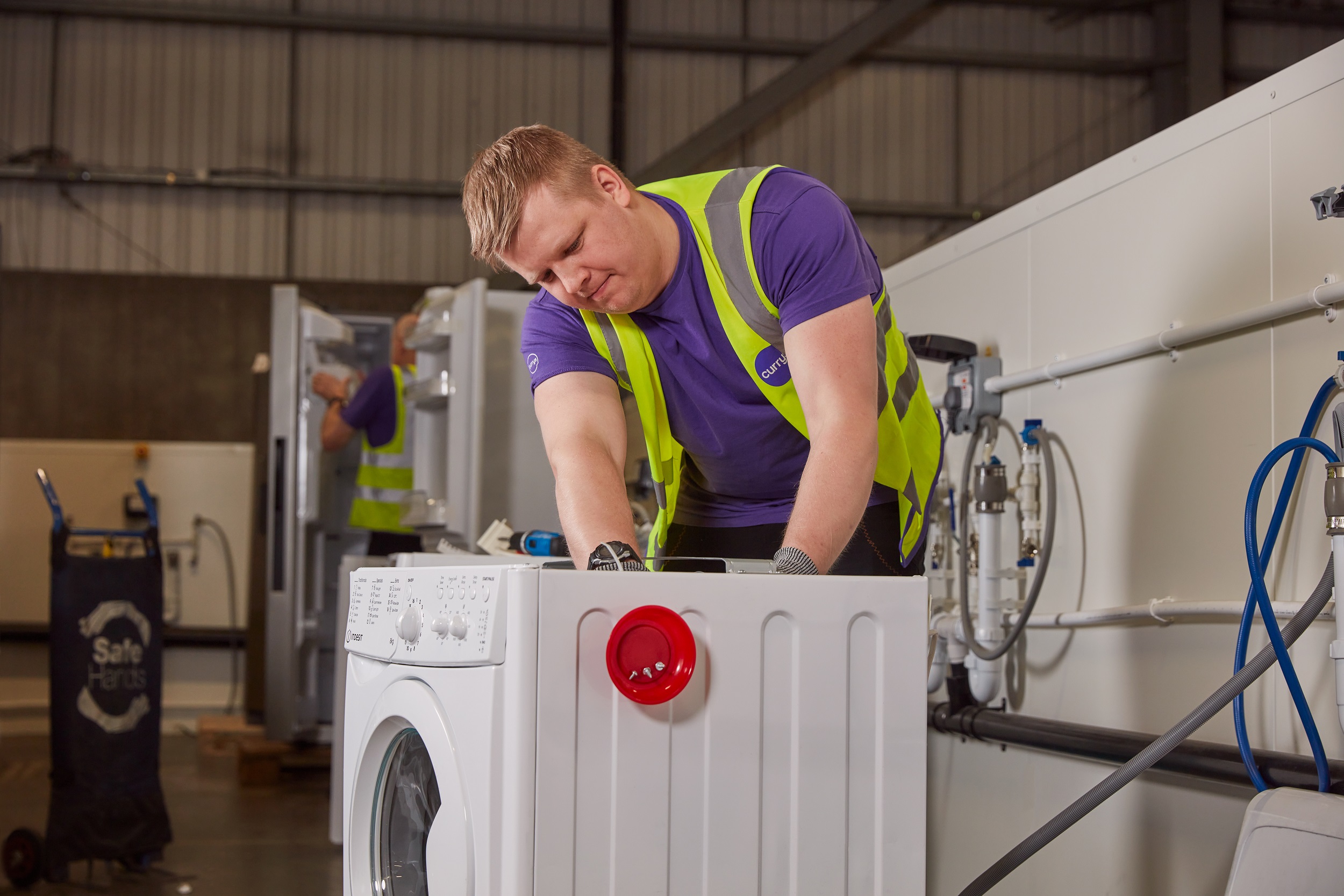The UK government should remove VAT from refurbished electrical products to keep technology from going to landfill, Alex Baldock, CEO of Currys, has stressed.
Electronic waste is one the world’s fastest growing waste stream, expected to grow to almost 75 million tonnes by 2030. Technology retailer Currys already offers a repair and recycling scheme. As part of its annual report and accounts for 2023/24, Currys revealed that 1.4 million repairs were carried out and 8.1 million e-waste products were collected across the group for reuse or recycling.
The retailer is now calling on government assistance. Baldock explained that VAT has “already been charged once on these products. I would like to see a radical reduction or entire cut on these products.”
Currys has witnessed a growing demand for pre-loved technology. As part of an exclusive interview in the DeliveryX Returns 2024 report, Steve Pendleton, services director of Currys, noted that there has been an “encouraging, normalisation of second-hand shopping when it comes to technology, in the same way everyone has generally embraced second-hand clothes shopping in the fashion industry.
“It’s been a real result for customers who can access high-end devices at cheaper prices, and the environmental wins are self-evident, in the sense we are reusing valuable, mineral-rich devices far more than ever before.”
The retailer has built Europe’s biggest technology repair centre in Newark, Nottinghamshire.
“It’s a great facility, half a million square foot of space, 1,000 expert colleagues, all of whom are highly engaged with an average tenure of almost a decade. They’re open 363 days a year, processing 3 million products a year across all of our major categories and for over 40 major brands,” explained Pendleton.
“Key to this operation is having colleagues with the technical expertise required to take one product apart in order to harvest valuable components to be used in the refurbishment of another. So,for example, if we receive a unit which is heavily damaged and unrepairable, our experts will still be able to take it apart and harvest the working parts to be used to repair and refurbish another unit from the same product line. This team harvest the parts from over 5,000 products each week, and they’re not just working on laptops either, they’re working on TVs, mobiles and white goods.
“So, we’re repairing and re-using as much as we can – in many cases giving us a significant source of recurring, higher-margin revenue – but we’re also recycling what we can’t use. Working with best- in-class recycling partners to turn what can’t be extracted by our experts in Newark, into recyclable materials that can be sold in bulk and reused in the manufacturing of future products.”
The full interview is available in the DeliveryX Returns 2024 report, as part of a wider look at how retailers are turning to repair and recommerce to help manage returns.
The report also covers what consumers think about return fees; why data could be key to minimising the impact of returns on retailers; and case studies on H&M and Oh Polly.
Stay informed
Our editor carefully curates two newsletters a week filled with up-to-date news, analysis and research, click here to subscribe to the FREE newsletter sent straight to your inbox and why not follow us on LinkedIn to receive the latest updates on our research and analysis.










